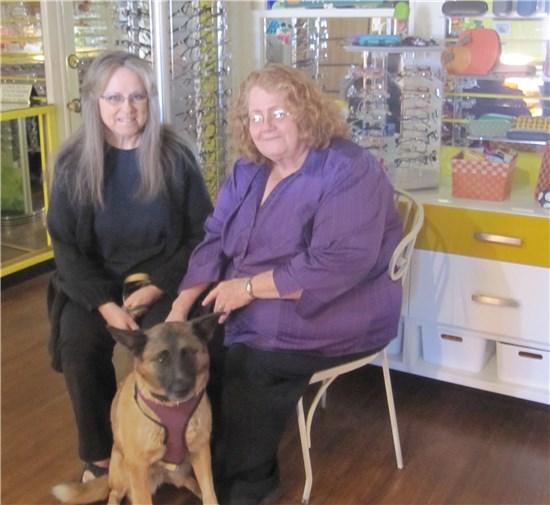By Pamela Miller, OD, FAAO, JD, FNAP

July 1, 2015
The job interview process is an exciting time, when you could hire your next star employee. But it also is potentially perilous, when you could get your practice into legal trouble by asking a question, or making a comment, that violates Equal Employment Opportunity law.Here are nine questions and comments that you should avoid, including a legally safer way of approaching the question or conversation.
Avoid Questions & Comments About Marital, Family Status & Place of Residence
Bad: “I noticed that you’re married and have a photo of your kids on your phone. Will you be able to handle a full-time schedule while juggling your family obligations?”
Good: “The hours you would be responsible for working are 9 am to 5 pm Monday-Friday, with two Saturdays per month also required. Will that be possible for you? Is there any reason that schedule might not work for you?”
Bad: “Where do you live? Did I overhear you say you live in Fairfield? Depending on the traffic, I know it takes up to an hour to get here, and there are frequent accidents on that road, and I think it might be too far for you to arrive on time for work. Will you be able to make it to the office a half-hour before we open during the week, and on the weekend days when you’re working?
Good: “We open promptly at 8 am every weekday morning, and at 9 am on the weekend, so we need our employees to be here by 7:30 am during the week, and by 8:30 am on weekend days when you’re working. Will that be possible for you?”
Avoid Questions About Religion & Health
Bad: “I notice you’re wearing a Star of David necklace. Are you Jewish? Will you be able to work on Saturdays? I remember hearing that some Jewish people don’t work on Saturdays, so I thought I should double-check.”
Good: “In addition to a regular weekday schedule, we also are open on Saturdays, so I would need you to alternate with the other employees, working at least one Saturday per month. Will that be OK?”
Bad: I see you are wearing a head scarf. Have you had chemotherapy, or is it just your religion? We don’t allow hats or any head coverings, because it alienates some of our patients.
Good: Our dress policy requires everyone to dress professionally, limiting any visible piercings to a single earring in each ear, no perfumes or aftershave, no visible tattoos, and hair must be worn up, above the collar.

Dr. Miller’s two optometric assistants, Effie (on left) and DeNese, with office rescue dog Angel. Dr. Miller says it is important to focus on the applicant’s skills and experience, rather than personal details, such as appearance, religious or political beliefs.
Avoid Asking Directly About Personal Habits & Style
Bad: “Do you smoke? Smoking is one of my pet peeves, so I don’t like hiring anyone who smokes. I don’t want an employee who smells of cigarettes, and who will be smoking outside the front door to my office.”
Good: “This is strictly a non-smoking office, and we like to talk a lot with our patients about healthy lifestyles. We like to send a positive message to patients about caring for their health, so we try to demonstrate healthy habits ourselves. It’s a big part of our philosophy. How do you think you would do working in an office like that? Would you feel at home working in an office with that kind of culture?”
Bad: “Is that a tattoo I see peeping out from under your shirtsleeve? You would need to keep all tattoos covered up if you worked here. We have an older, more conservative patient base, so I like to keep it pretty clean cut—no long hair on men, no provocative dress from women and no visible tattoos or piercings outside of pierced ears.”
Good: “Our patient base tends to be a little on the older and more conservative side. So, we like to also keep a conservative tone here in the office. We like to ask our employees to dress in an under-stated way (outlined in our employee handbook), and try to reflect the same style our patients are projecting back to them. Would you be OK working in that kind of conservative, slightly old-fashioned office?”
Don’t Lead Applicant to Believe They Have Job–Unless They Definitely Do
Bad: “Well, everything looks great. We’ll check your references in the next few days, but it looks like you’ve got it.”
Good: “We’ll be checking your references over the next few days, and then we’ll give you a call.”
Deciding Against an Employee Based on Religious Practices–Including Clothing–Is Against the Law
Click HERE to read New York Times coverage of a recent U.S. Supreme Court case that ruled in favor of a woman wearing a headscarf, as part of her Muslim faith, who was denied employment by a major American company.–ROB Editors
Don’t Comment About Personal Appearance
Bad: “Your credentials are excellent, and everybody here has enjoyed getting to know you. Plus, you’re so nice looking. We could use an attractive man like you in our optical. We’re trying to bring in a more stylish, ‘beautiful people’ crowd.”
Good: “Your qualifications are great, and we’ve all really enjoyed getting a chance to meet with you. You also seem to have a great sense of style, which would be beneficial to our optical.”
Don’t Comment About Applicant’s Social, Financial Status or Political Beliefs
Bad: “Your qualifications are good, and we all really like you, but I have one area of concern: We have a very upscale patient base, and I gather from your comments that you come from more of a working class background. I’m worried our patients may not feel comfortable with you.”
Good: “Your qualifications are good, and it’s been nice meeting with you. We’ll be reviewing all of our applicants over the next week, trying to decide who we feel would be the best fit for the job—and for our patients. We’ll let you know when we’ve reached a decision.”
Bad: “How would you characterize your political views? Have you ever been on welfare or worked for a Democratic candidate?
Good: “Our patient demographics tend to be upscale, college-educated patients who are primarily business and professional people, of various faiths and political views. We have a strict policy against discussing politics and religion in the office.”
Don’t Give Evidence of Nepotism
Bad: “You’re just fantastic, and we think you would be great for the job, but my niece just applied this afternoon, so I’ll probably have to give her preference.”
Good: “Thank you so much for taking the time to meet with us. It’s been nice getting to know you. Our applicant pool has gotten bigger than we expected, so there’s more for us to review. We’ll be in touch once a decision has been made.”
Don’t Ask About Applicant’s Ethnicity
Bad: You look Mexican. Do you speak Spanish?”
Good: Our patients come from many heritages and speak many languages other than English. Are you fluent in any language, or do you feel comfortable speaking in any language other than English?”
Don’t Ask or Comment on Sexual Preference
Bad: “I overheard you speaking to my staff about your partner. Are you gay? I have mixed feelings about hiring a lesbian, and don’t want anyone propositioning my patients.”
Good: “We have an absolute policy in our office prohibiting harassment, discrimination or otherwise offending our fellow employees or patients. Do you feel comfortable working in an office that has a zero tolerance policy?”
Pamela Miller, OD, FAAO, JD, FNAP, has a solo optometric practice in Highland, Calif. She has a law degree, holds a therapeutic license, is California State Board-certified and glaucoma-certified to prescribe eye medications, and offers comprehensive vision care, contact lenses, visual therapy and low vision services. To contact her: drpam@omnivision.com.



























